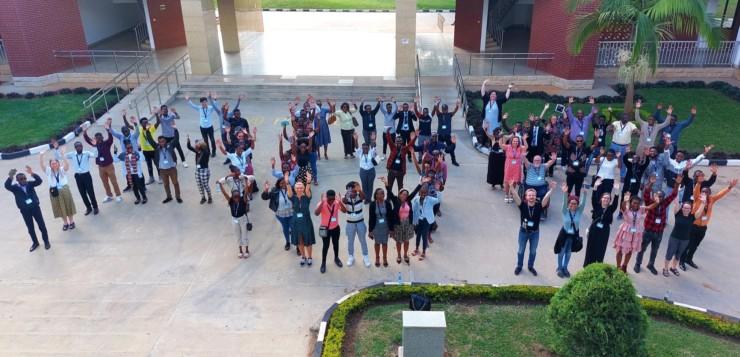Häme University of Applied Sciences’ (HAMK) degree programme of Sustainable Development has been using phenomenon-based curricula and project-based learning method for more than ten years. For the day one, students start to work in teams to solve real-life problems faced by companies and communities. This learning method develops variety of transferrable skills, needed in the rapidly changing world and work-life of 21st century.
Sharing the experiences
Within its Africa projects, HAMK is providing its educational know-how to and integrating project- and problem-based learning (PBL) to bio-economy education in nine universities in Kenya, Uganda and Zambia. Among other activities, these projects organize “student challenges” to students from HAMK and the African partner universities. These are practical-oriented courses, where students from different institutions team-up to work with a task or a problem of an external partner, such as company or societal organization. Student challenges provide students’ opportunities to develop work-life relevant skills, network with companies and peer-students and gain international experience.
As compared to traditional, lecture-type of teaching, PBL changes students’ role from passive information recipient to active and responsible “doer”. This transformation may cause initial student resistance and frustration. Students may feel uncertain of their skills to solve the problem or conduct the given tasks. Students of Sustainable Development programme have for example described PBL and their feeling during it as oppressive, distressing, outside of comfort zone, afraid and chaotic. On the other hand, PBL has increased motivation towards studies and many students have later thanked the teacher for enabling them to practice and develop skills needed in the working life, describe being excited, interested, eager and valuing the real-life contacts.
The vast experience on PBL and on organizing student challenges in HAMK, has built a big base of know-how on how to guide students within the PBL process and fast-forward to the positive feelings and outcomes. During the AGS Co-creation and Innovation programme – that brought together Zambian small and medium businesses and students form HAMK, Mulungushi University and University of Zambia – this know-how was shared to the students, Zambian teachers and company representatives.
Starting the PBL process
Before starting the actual PBL process, it’s advisable to arouse and build up students’ motivation. Within the AGS Co-creation and Innovation programme, students were asked to list competences needed in their dream job. None of the students mentioned the main deliverable of lecture-based teaching: rote learning of content knowledge. On the contrary, students listed skills such as critical thinking, innovativeness, cooperation, creativity, entrepreneurial skills, self-marketing and leadership. These are core skills attributed to PBL. Understanding this improves students’ attitudes towards PBL, as they realize the benefits and rewards of the process.
To reduce the feelings of uncertainty and incapability, and to help to kick-start the process of problem-solving, it’s important to emphasize students that there are no easy solutions to the problem, otherwise it would not be a problem in the first place. Students should also understand that there are no pre-determined “right” answers or solutions, but solutions can be as many as there are solvers.
Even the students work with real-life projects and contribute to real-life outcomes, nobody should expect students to be professionals on the field, but the main role of the student is to learn during the process. Within the AGS Co-creation and Innovation programme this was highlighted both to the students to reduce their pressures, but also to the business representatives for not to burden nor expect too much from the students.
Working withing teams and cooperating internationally creates challenges of its own. Challenges may relate to communication, differences in working methods, commitment and/or aims. To facilitate smoother process, and to enable team members to be aware of their own roles and responsibilities, the teams were advised to create team-rules, emphasizing working and communication methods and expected input of each member.
From experience we have learned the importance of building a safe learning environment before exposing students to negotiations with companies. This means encouraging students to speak up and express their opinions. Confident students have the courage to ask questions and criticize, core attributes needed in problem-solving and working life.
Despite using learning and working methods new to most of the participants, the co-creation process among the students and businesses was successful. 50 students passed the student challenge by developing 14 service/product concepts together with the companies, demonstrating the beneficiality of PBL for developing entrepreneurial and other work-life skills while simultaneously helping existing companies to move forward.
Authors:
Ulla-Maija Knuutti, Senior lecturer at Sustainable Development Degree Programme
Satu Määttänen, Research assistant in HAMK Bio





Discussion1 kommentti
Pingback: What makes a good mentor in problem-based learning? - HAMK Beat